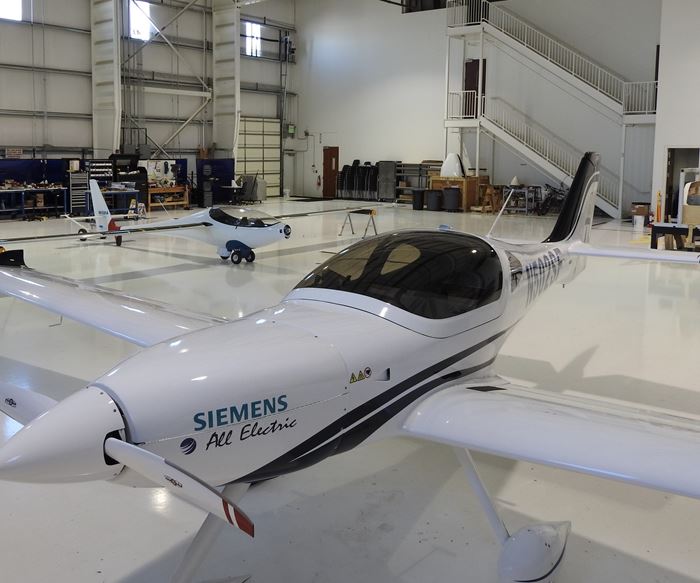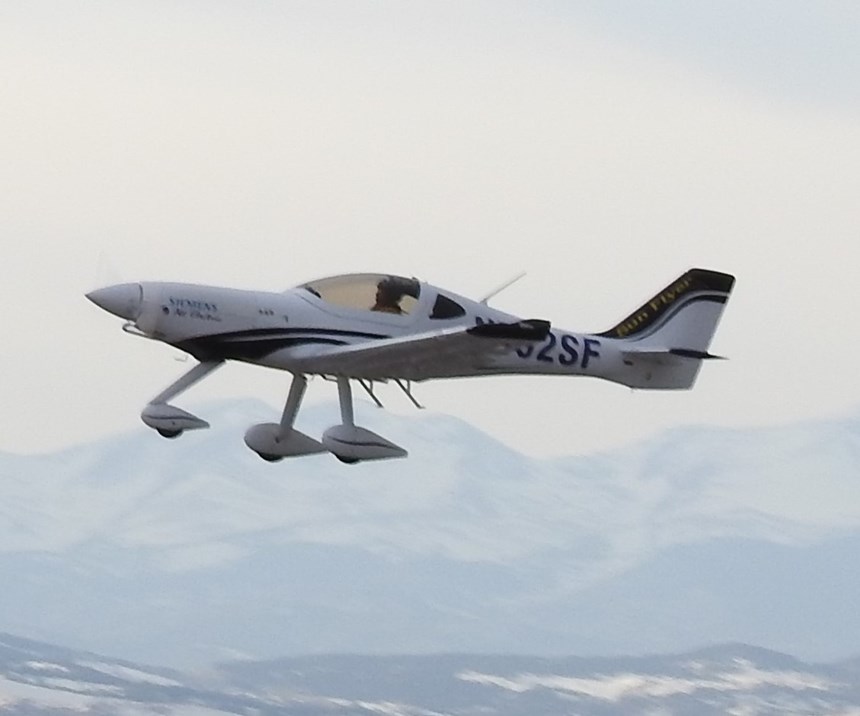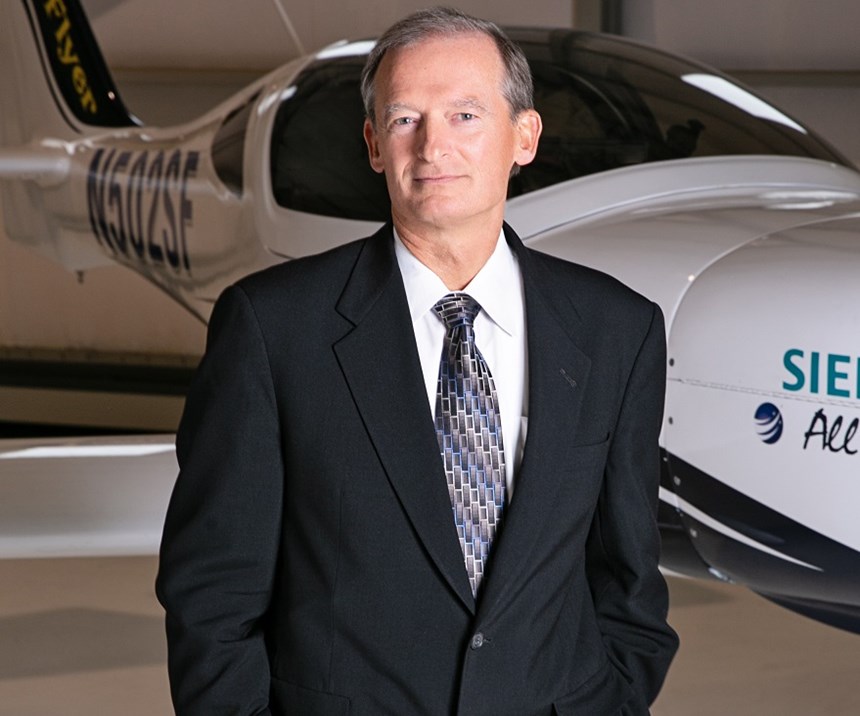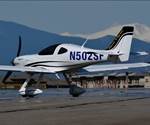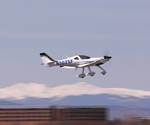Bye Aerospace expands eFlyer operations to larger hangar
The larger hangar, at Centennial Airport in Denver, Colorado, houses the company’s full engineering and operations team as well as prototype programs like its eFlyer 2 electric aircraft (formerly Sun Flyer).
Bye Aerospace (Denver, Colo., U.S.), the developer of the eFlyer (formerly Sun Flyer) family of electric aircraft, announced that, following venture capital funding from the SUBARU-SBI Innovation Fund in November 2018, it has expanded its engineering and operations departments to a larger hangar on Centennial Airport. In addition, the company continues to grow and says it has more than doubled its number of employees over the past 12 months.
The new hangar, located on the southeast side of Centennial Airport in Denver, Colorado, is reportedly capable of housing the eFlyer and StratoAirNet proof-of-concept prototypes, with additional space for assembling future conforming prototypes. In addition, the facility houses the engineering and operations team for the eFlyer program. The two-seat eFlyer 2 is undergoing an ambitious flight test and certification program, aiming to be the first FAA Part 23-certified electric training airplane in the world.
“2018 was the breakout year for Bye Aerospace, and this year we are focused on flight testing and certification efforts for eFlyer 2,” says George E. Bye, CEO and founder of Bye Aerospace. “The prototype eFlyer 2 that flew for the first time with the new Siemens electric propulsion motor on Feb. 8 will be completing the initial phase of Siemens flight tests soon. Then, the airplane will be upgraded to the final production version of the motor that will also go on the future FAA-certified production-conforming versions of the eFlyer 2.”
Bye says the eFlyer prototype with the current Siemens motor has completed a dozen successful flight tests, validating predicted flight efficiency and energy use since its initial flight.
Related Content
-
Zeiss, Imperial College London summer school enhances materials, sustainability learning
Twenty-four next-generation students attended the Imperial College London this August to advance their scientific knowledge, with workshops, lectures, activities and a composites competition.
-
NASA names university teams for aeronautics research challenges
As part of the agency’s University Leadership Initiative, three multidisciplinary teams will address topics related to growth in AAM, while a fourth examines electricity generation for future airliners.
-
Inha University incorporates SwiftComp simulation software to virtually test composites
AnalySwift’s SwiftComp tool aims to mitigate the burden of costly experiments and enable accurate testing of woven and braided composite structures.

.jpg;width=70;height=70;mode=crop)
